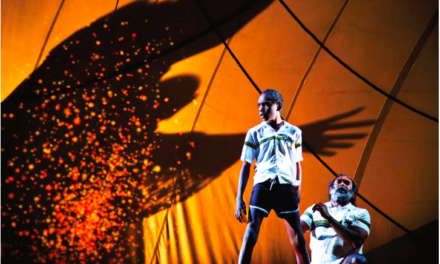Today, I watched the first episode in the Tools for Change trilogy, digital reimaginings of three plays exploring racism, censorship, power and identity from the Theatre Uncut archive, in a co-production with the Traverse Theatre. It is Suhaiymah Manzoor-Khan’s A Coin in Someone Else’s Pocket. Originally commissioned as part of The Power Plays produced by Theatre Uncut in 2018, it is a wonderfully thoughtful meditation on what it means to be a female Muslim writer, and how you can be taken by surprise by those basic questions: who am I writing for? And what do I really want to say? In her case, this is made complicated by the fact that clearly her appearance as a “vocal Muslim woman” or as “vocal and unapologetic” means that she is immediately perceived as a stereotype. The audience wants her to be one thing; in reality, she feels that she is many things. The audience wants her to tell stories that confirm their prejudgments and predispositions. By hey, she is an individual and nobody’s stereotype. This short 10-minute piece is an inspiring plea for the complexity of all human experience — it’s great. It’s definitely essential viewing. Co-directed by Manzoor-Khan and Daisy Ifama, the monologue is quietly and pointedly performed by the author with half of the screen showing video images of sympathetically beautiful scenes: flowers, carpets, food being prepared. Plus a reiteration of some of the text’s key phrases. Yes, nature doesn’t judge us, but people do. The other two plays are Re: Exhibit by Brixton House artistic director Gbolahan Obisesan, which confronts colonial white privilege and Safe by Gal Dem’s lifestyle editor Niellah Arboine, which concerns the search for a safe space on the internet. All three playtexts are available for free from the Theatre Uncut website.
Tools for Change is on the Traverse website until 28 November.
This article originally appeared on Sierz.co.uk on October 14, 2020, and has been reposted with permission. To read the original article, click here.
This post was written by the author in their personal capacity.The opinions expressed in this article are the author’s own and do not reflect the view of The Theatre Times, their staff or collaborators.
This post was written by Aleks Sierz.
The views expressed here belong to the author and do not necessarily reflect our views and opinions.

















